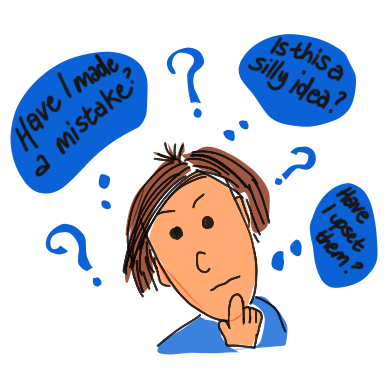Asking open ended questions – why you should rethink the ‘why’ questions!
The value of open questions
In our work as coaches, we often see the power of an open-ended question. Open ended questions – typically those that start with ‘what’, ‘when’, ‘how’, ‘who’ and ‘where’ – invite the respondee to ponder, to think more deeply, to elaborate more, to go into the detail. Or in other words, they create the space and freedom for someone to ‘open up’!
The value to us as coaches is that we get more information, both fact data and feeling data. By listening deeply, we get to hear emotions, sense the meaning behind the words, and sometimes even pick up the unsaid – what might be sitting below the surface.
They – the person answering the question – gets real value too! They have a space where they feel safe to tell their story, and in putting it in a way that needs to make sense to someone else, they often obtain deeper insight into their own issue – getting more clarity in their thinking, and if they need it, some validation they are on the ‘right’ track.
What about ‘why’ questions?
But what about ‘why‘ questions? Do they have the same impact? The short answer to this closed question is no! They are still strictly an open question (ie they elicit more than a Yes, No or one word answer), however they tend to trigger a different result and feeling inside the respondee…
When they hear…
Why did you do that? (questioning past choices) or
Why would you want to do that? (questioning future ideas)
their own self talk inside their head might sound like this …

Am in trouble? Have I got this wrong? Have I stuffed this up? Do they think I am stupid? Have I upset them? Do they think there is a better way? They think this is a dumb idea!
And in some cases they’ll think – ‘Gee I don’t know why – I just did it without thinking!’ Now what do I do?
Even if it is not intended by the question asker – the respondee may feel judged. It might put them on the defensive. They may respond with a sense of panic – frustration – or even anger – feeling a need to justify or redeem themselves.
How can I ask ‘why’ questions in a different way?
So what should you do instead? Why questions are not always bad – as we explain below – however there are times when we can express a ‘Why’ question in a much more effective way. Here are some examples…
- How did you arrive at this decision?
- What was the thinking getting to this point?
- How did you come to this view?
- What were the reasons for taking that step?
- Walk me through how you came to that …?
- What is it about this option that appeals most to you?
- What other options might there be?
- What else gives you confidence this is the right path?
- What need do you think this plan is servicing?
- What do you think will be the result of that?
And instead a the short and sharp ‘Why?’ could you try ‘How come?’ – not a big change but still a less threatening than the blunt ‘why’!
But hang on, but Simon Sinek tells us to ‘Start with Why!’
We love Simon Sinek as much as the next person, and are strong believers in the value of the ‘Start with Why’ thinking. That ‘Why’ question, however helps to elicit a deep understanding of PURPOSE – for an organisation, a team or an individual. These sorts of ‘Why’ questions are critical ones to be answered. But they are a different conversations to the moments are talking about here!
Even if you are just being curious … a clumsy phrasing of a question with ‘Why’ can make the other person feel judged or like they are being interrogated!
One more tip
And while we are at it, whilst ‘How’ questions are great open questions, I sometimes prefer to phrase some ‘How’ questions as ‘What are the steps?’ this helps someone break things down into chunks which is often easier for them!
